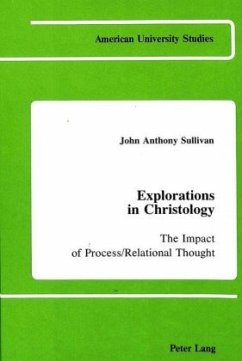The classical Hellenic concept of God as self-consistent (incapable of internal mutability and passionality) is rejected by process theologians on the basis of the immediacy of lived experience and the biblical witness. All actual reality is relational. Process theologians attempt to arrive at modern Christological statements which would do justice to the central intention of traditional creedal affirmations. If Christ can be considered "the image of creative transformation" in the context of contemporary theological pluralism, even Paul Tillich's category of existentialist ontology is adaptable. The cosmological "image" of Christ is compatible with the ontological "symbol" of New Being in Jesus as the Christ. The consequences for exploratory Christological affirmations to account for God's unique presence in Jesus the Christ are appealing to modernity.
"Sullivan also invites us into an ecumenical adventure in which a Roman Catholic theologian discovers a train of Christological thought generated by a largely Protestant movement. The excitement is palpable. Not only the original generation (Whitehead and Hartshorne), but their successors (Pittenger and Cobb), are brought into the dialogue, as well as Paul Tillich and a number of others such as Daniel Day Williams who are allowed to contribute from time to time." (Gerald Christianson, Lutheran Theological Seminary) "An interesting but difficult book ..." (T.J. van Bavel, Louvain Studies)

